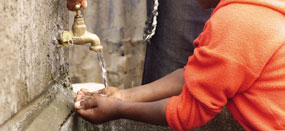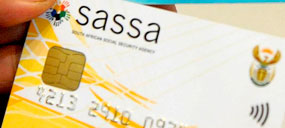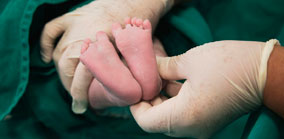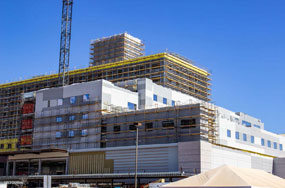Municipalities
In many cities and towns across the country, roads are not maintained, water and electricity supply is often disrupted, refuse is not collected and sewage runs in the streets. In part, this has happened because many municipalities lack the technical skills and resources required to meet people’s needs.
Many municipalities have not reinvested the revenue they earn from these services into the upkeep of infrastructure. Starting this year, government will work with municipalities to establish professionally managed, ring-fenced utilities for water and electricity services to ensure that there is adequate investment and maintenance.
Many of the challenges in municipalities arise from the design of the local government system. Government will therefore undertake extensive consultation to develop an updated White Paper on Local Government to outline a modern and fit-for-purpose local government system.
Government will review the funding model for municipalities, as many of them do not have a viable and sustainable revenue base. It will continue to work with traditional leaders in the implementation of local development programmes. It will expand its support to municipalities that require assistance, drawing on the lessons of the Presidential eThekwini Working Group.
Government is seeing great progress in eThekwini, as it implements the District Development Model, which enables all key role players in government, business, labour and community-based organisations to work together.
Digital identity system
As government works to reform the Public Service and build the capability of the State, it will harness technology to transform the way that government works. It will invest in digital public infrastructure to give South Africans access to government services anytime, anywhere through a relaunched gov.za platform. At the heart of this transformation will be the implementation of a digital identity system.
These measures will transform the relationship between citizens and government; and create one government that is accessible to every person at a touch.
Water
As government forges ahead with the reform agenda, an urgent priority is to ensure a secure and reliable supply of water across the country. Many people in the cities, towns and villages are experiencing more and more frequent water shortages as a result of failing water infrastructure. It is impossible to live without water and it is impossible for the economy to grow without water.
Government is therefore taking a series of decisive actions to resolve the water crisis, to enable the people to get water where they live, whether in townships or rural areas.
“We are investing heavily in expanding our water resources. When we travel to many places, we find that the elderly are complaining about the lack of water. They tell us about how scarce water is in their areas. They are asking government to bring them water. Yes, we will do all of that. Know that water will reach you where you live. You will get it.” – President Cyril Ramaphosa, SoNA, 6 February 2025, Cape Town City Hall.
 To date, the Infrastructure Fund has secured R23 billion for seven large water infrastructure projects. Government has ended delays in major water infrastructure projects like Phase 2 of the Lesotho Highlands Water Project and the uMkhomazi Dam.
To date, the Infrastructure Fund has secured R23 billion for seven large water infrastructure projects. Government has ended delays in major water infrastructure projects like Phase 2 of the Lesotho Highlands Water Project and the uMkhomazi Dam.
Work is underway to prepare for construction of the Ntabelanga Dam on the uMzimvubu River to supply additional water for domestic use and for irrigation in the Eastern Cape.
Within the next year, government will complete the establishment of the National Water Resource Infrastructure Agency to unlock much greater investment in water projects. Through the Water Services Amendment Bill, it will introduce a licensing system for water-service providers and remove licences where providers do not meet the standards for quality drinking water.
Social assistance and poverty alleviation
For 30 years, since the dawn of democracy, government has worked together to reduce poverty. Today, it spends around 60% of the national budget on the social wage: on health, education, social protection, community development and public employment programmes.
 More than 28 million unemployed and vulnerable people receive social grants. More than 10.5 million learners go to public schools where they do not have to pay fees. Last year, over 900 000 students from poor and working-class backgrounds received funding to study at universities and colleges. Through these programmes, government is alleviating the worst effects of poverty.
More than 28 million unemployed and vulnerable people receive social grants. More than 10.5 million learners go to public schools where they do not have to pay fees. Last year, over 900 000 students from poor and working-class backgrounds received funding to study at universities and colleges. Through these programmes, government is alleviating the worst effects of poverty.
Government is providing the means through which South Africans can rise above the poverty that has been passed down from one generation to the next. But it has to do much more if it is to end poverty.
“We must do much more to ensure that women in particular, no longer face a hopeless struggle to feed and clothe their children.” – President Cyril Ramaphosa, SoNA, 6 February 2025, Cape Town City Hall.
While government invests heavily to support poor and unemployed people, these programmes are fragmented and sometimes difficult to access. It is therefore building an integrated system of support for poor and unemployed people.
Government is strengthening existing programmes from job search support to public employment and making sure that together, they provide people with pathways out of poverty. Rather than expecting those in need to approach several government agencies separately, a citizen should be able to go to one place to receive all of the support that they need.
Healthcare and infrastructure
 Government wants a nation in which there is quality healthcare for all. This year, it will proceed with the preparatory work for the establishment of the National Health Insurance (NHI). This includes developing the first phase of a single electronic health record, preparatory work to establish Ministerial Advisory Committees on health technologies and healthcare benefits, and an accreditation framework for health service providers.
Government wants a nation in which there is quality healthcare for all. This year, it will proceed with the preparatory work for the establishment of the National Health Insurance (NHI). This includes developing the first phase of a single electronic health record, preparatory work to establish Ministerial Advisory Committees on health technologies and healthcare benefits, and an accreditation framework for health service providers.
The NHI will reduce inequalities in healthcare by ensuring everyone gets fair treatment. It will save many lives by providing a package of services that include, for example, maternal and newborn care and services for people living with HIV and AIDS, tuberculosis (TB) and those suffering from non-communicable diseases such as heart disease, cancer and diabetes.
Government’s most immediate priority is to strengthen the health system and improve the quality of care. A vital part of this is the modernisation, improvement and maintenance of existing health facilities and construction of new hospitals and clinics.
A number of hospitals are under construction or undergoing revitalisation. These include the Limpopo Central Hospital and the Siloam District Hospital in Limpopo, the Dihlabeng Regional Hospital in Free State, the Bambisana District Hospital and Zithulele District Hospital in Eastern Cape, and the Bophelong Psychiatric Hospital in the North West.
 Other projects are at various stages of design and development. This includes the replacement of three existing old central hospitals, three new central hospitals, five new district hospitals, five community health centres and a new psychiatric hospital.
Other projects are at various stages of design and development. This includes the replacement of three existing old central hospitals, three new central hospitals, five new district hospitals, five community health centres and a new psychiatric hospital.
To improve patient experience, government is putting more emphasis on reducing waiting times, cleanliness and staff attitudes in public health facilities.
Government is encouraged by the great progress the country has made towards ending HIV and AIDS as a public health threat. By the end of March 2024, 96% of people living with HIV knew their status, 79% of these were on antiretroviral treatment and 94% of those on treatment were virally suppressed.
To ensure that it reaches its target of 95-95-95, government will this year launch a massive campaign to look for an additional 1.1 million people who are not on treatment.
Government is concerned about the potential impact of the decision by the United States Government to suspend some of its funding for HIV and TB programmes in African countries for 90 days. This funding accounts for about 17% of the country’s HIV spend.
Government has been able to provide funding from the fiscus for HIV and TB programmes over the years. It is looking at various interventions to address the immediate needs and ensure the continuity of essential services.
Housing
To tackle inequality, government needs to undo apartheid spatial planning, which has scarred cities and forced many people to live far from areas of work and opportunity.
Government has delivered millions of housing opportunities since 1994, providing safety and dignity to poor households, yet the practice of building housing developments on the periphery of urban centres has perpetuated inequality and urban sprawl.
Going forward, government is going to build more housing in city centres, and closer to work and business opportunities. Government is redesigning housing subsidies and directing more funding towards programmes that enable people to buy or rent a home in an area of their choice. It will release more underutilised state properties for affordable housing development.
Government is working with provinces and metros to reclaim buildings that have been hijacked in the city centres and re-purpose them for public use. It will provide 300 000 serviced stands to qualifying beneficiaries to enable housing development in well-planned, connected communities along key development corridors.
“We will clear the backlog of title deeds for subsidised housing, turning homes into household assets. We will review land use, building and other regulations to enable low-cost property development, including backyard housing. This represents a fundamental rethink of how the state delivers housing at scale while turning our cities into engines of growth and opportunity.” – President Cyril Ramaphosa, SoNA, 6 February 2025, Cape Town City Hall.
Passenger rail transport
In making cities work for their residents, government will restore the remaining passenger rail corridors and stations to full service. More than 80% of passenger rail corridors have been returned to service.
The Passenger Rail Agency of South Africa (PRASA) has introduced over 200 modern, locally-produced trains on its network to provide a low cost option for public transport. Over the next five years, government will restore PRASA’s signalling system so that it can put all new trains to work and commuters can be assured they can reach work safely, affordably and on time. Government wants a nation in which everyone is safe.




